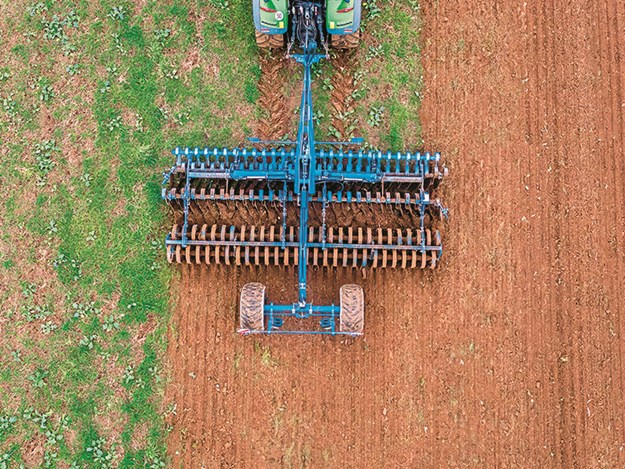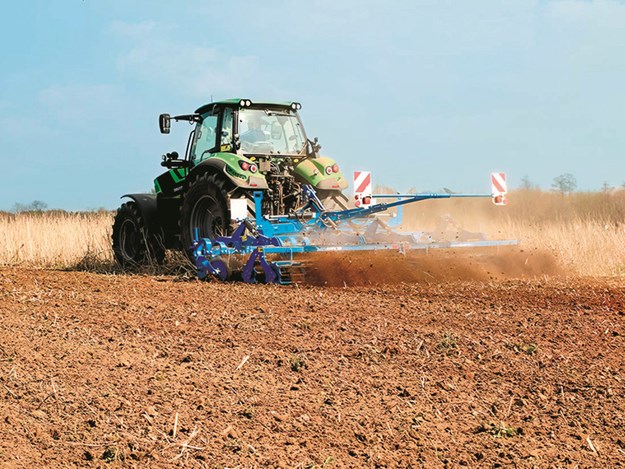German manufacturer Lemken plans to build on local enthusiasm for its cultivator range with a new broadacre focus Down Under
After more than 240 years in operation, it is fair to say Lemken has learned a thing or two about manufacturing.
Starting life in 1780 when Wilhemhus Lemken established a steel foundry in Germany, the company remains family-owned and does all its manufacturing in-house.
Crucially, this has helped to shield Lemken during the COVID-19 pandemic from supply chain issues experienced by other manufacturers.
 |
|
The Heliodor range is among Lemken’s most popular products
|
Recently released figures show the company’s 2021 global turnover was €446 million (A$649 million), an increase of 22 per cent from the previous year, while more than 1,600 people worldwide are employed by Lemken across six divisions.
Given the manufacturer’s long history, it took a comparatively long time for Lemken to establish an official Australia and New Zealand subsidiary, with the first one opening in 2018.
The local priority since then has been growth, according to area sales manager Craig Hopkins.
“We have expanded the dealer network from there, as previously it was one dealer importing into Australia by themselves. It’s just about growing the dealer network now for us,” he says.
“We just posted a record for Australia as well – we sold over 200 machines last year.
“We’re definitely in a big growth spurt at the moment and a lot of that is to do with demand from the farmers.
“We’re expanding the spare parts stocks as well. Last year we grew it by 700 line items for the parts we need to carry, and we’re going to go another 500 line items for this year.”
Lemken is known for its seeding and tillage machinery, all of which is in the company’s famous light blue colour.
German manufacturing has a reputation for reliability and strength, and Hopkins says this is true of Lemken’s products.
“The strength of the machine is what makes it stand out, how it’s produced and how bulletproof it is,” he says.
“In the wear parts side of it, they don’t just put a basic bearing or a basic metal material disc in. It’s always got an extra hardness rating in the disc for longer wear life.
“We don’t use any rubber, it’s all spring steel so the spring doesn’t wear out.”
 |
|
The Heliodor compact disc harrow range has a working width of 2m to 16m
|
Hopkins says the most popular machines with Australian customers have been the Heliodor compact disc harrows and the Rubin range, which he describes as “more of the primary cultivation and secondary cultivation out of the one machine”.
The Heliodor is available in Australia with working widths from 3m to 16m, with some models available with hydraulic folding to reduce the transport width to only 3m.
The Heliodor also features two rows of discs individually mounted to leaf springs, which helps to provide a consistent cultivation depth while allowing individual discs to go over rocks when necessary.
Lemken’s Rubin, meanwhile, is available locally with working widths between 3m and 7m and also has models that fold hydraulically.
Its standout features include an impact harrow behind the first row of concave discs to guide the soil, a self-locking device to easily adjust the working depth of the harrow’s flow, a large disc diameter of 645mm for the Rubin 10 and 736mm for the Rubin 12, and a symmetrical disc arrangement to ensure there is no side draft, even when operating on slopes.
There is plenty more in the works for Lemken, highlighted by a push into weed control following the purchase of Dutch technology company Steketee in 2018.
“They’ve just invested €18 million (A$26 million) in a new factory in the Netherlands so that’s primarily for all types of crops from lettuce through to broadacre,” Hopkins says.
“We’ve got machines running in New Zealand at the moment with full camera technology for weeding, so it weeds in between the rows and in between the plants.”
.jpg) |
|
The Rubin 12 range of compact disc harrows enables cultivation up to 20cm deep
|
In Australia, Hopkins says Lemken is aiming to expand its product base to cater for a wider range of farmers and their needs.
“We’re going to focus a bit more on the broadacre side later this year with a 40-foot bar to do weed control as well, because we know chemical prices are going up,” he says.
“We are also expanding our seed drills as well.
“We’ve got a new maize drill and it’s not the traditional planting one row, it’s a double row system. With that, we’re seeing a minimum four tonnes per hectare increase in yield.
“Next year, we will also have a new trailed seed drill called the Solitair DT, which is more for doing some direct drilling of both seed and fertiliser,” he adds.

